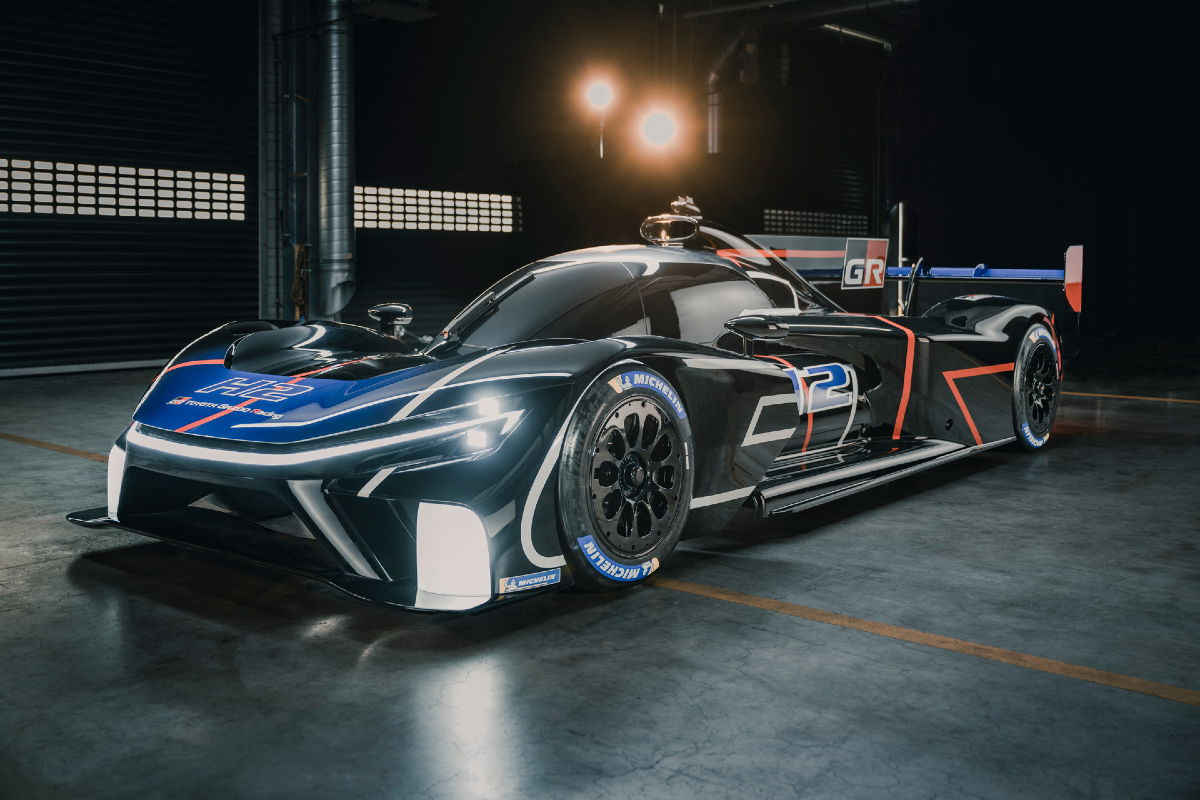
Toyota is not a fan of the electric car. The Japanese giant has been conspicuously slow in entering the EV market and has maintained its stance that it will pursue what it calls a ‘multi-pathway’ strategy for its future vehicles.
What does that mean? In simple terms, Toyota is not nailing its future hopes to any particular technology and is instead investigating multiple options. One of its biggest hopes is liquid hydrogen fuel, and as we’ve written previously, its ‘GR H2 Racing Concept’ could be the most important car the company makes in the next decade.
In major automotive news that was largely overlooked by the motoring media, Toyota Gazoo Racing has announced plans to take the GR H2 concept racing in the World Endurance Championship by 2028, running it alongside its existing GR010 Hybrid Hypercar.
Why is this a big deal? Because it represents a major step towards liquid hydrogen powertrains as an alternative for the future, joining hybrids, EVs and hydrogen fuel cell vehicles.
Toyota has been working on developing internal combustion engines that run renewable hydrogen-based liquid fuel for more than five years. It has been developing this technology both on the road car side but also in domestic racing in Japan, but a move to a global motorsport platform suggests it is getting closer to a production future too.

Toyota chairman (and creator of Gazoo Racing) Akio Toyoda is an avid proponent of the multi-pathway strategy and made clear his vision for both performance street cars and motor racing when he unveiled the GR H2 Concept in June 2023.
“My goal is to achieve carbon neutrality in motorsports without sacrificing anything in terms of performance or excitement,” Toyoda said at the time.
“We look forward to our new GR H2 race car in view of the new Le Mans H2 class in the future.
“The sound, the torque, the dynamics, it’s all there. Not only are we re-imagining the race car, we’re doing it with zero emissions. Here’s to the next 100 years of chequered flags!”
Toyota Gazoo Racing has indicated it will run a version of the GR H2 in selected races in 2028, including Le Mans, depending on what organisers allow, with plans for a start in the home race in Japan too.
Toyota isn’t the only brand racing down this path. Alpine revealed the Alpenglow HY4 hydrogen-powered concept early in 2024 and undertook a demonstration run at Le Mans this June. Hyundai is another brand with billions invested in hydrogen technology and its recent interest in a WEC move could be tied to a future racing hydrogen-powered prototypes.
As we’ve seen over the decades, technology tested and developed on the racetrack inevitably ends up in the cars we drive. For those not keen on an all-electric future, saving the internal combustion engine with a new, renewable, fuel source could be the answer.











Discussion about this post